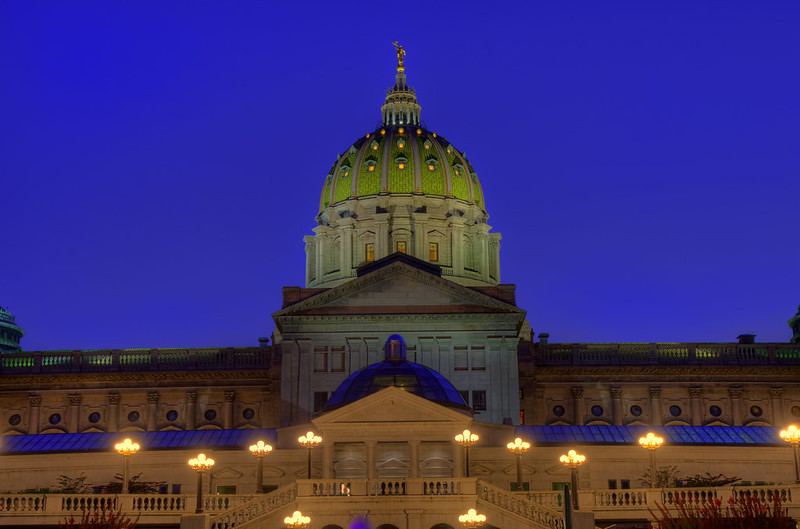
Photo by Craig Fildes
By Jen Quinn, Legislative and Political Director
Summers in Harrisburg are usually quiet, with the legislature typically out of town for summer recess, and we usually have a chance to catch our breath and plan for the fall session, but this summer has been unusually busy with the legislature staying in town and focusing on a variety of anti-environmental bills.
HB 1100 'lite'
You probably remember Hb 1100 from a few months ago. This is the huge petrochemical tax credit bill that offers a tax credit to an unlimited number of plastics and fertilizer manufacturers. This bill passed both chambers by very large majorities due to significant pressure from labor unions. It was vetoed by the Governor in late March and there have been persistent rumors about an attempt to override this veto.
To avoid a possible veto override vote, the Wolf administration, labor, and Republicans developed a 'lite' version of HB 1100 that was amended into a tax code bill (HB 732) very quickly a few weeks ago. This new version limited the number of facilities eligible for the tax credit to four and would offer the tax credit for twenty-six years, totaling roughly $693 million.
This ‘lite’ version, while limiting the number of facilities, will still prevent hundreds of millions of dollars from going into state coffers at a time when there are huge budget holes due to Covid-19 and the average Pennsylvanian is struggling. It will also ensure more fracking and provide subsidies to already wealthy companies.
HB 2025 (anti-RGGI)
You might recall Gov. Wolf's Executive Order from last October where he instructed the DEP to join RGGI. Unfortunately, Republicans in the State House don’t support these efforts. Hb 2025 would halt Pennsylvania's current efforts to regulate carbon pollution and participate in the Regional Greenhouse Gas Initiative (RGGI) by requiring legislative approval. It passed the House a few weeks ago by a vote of 130-71. We’re not sure if the Senate will move this bill because it will most certainly be vetoed by the Governor if it makes its way to his desk.
The current sentiment among many in the Capitol is that you're either pro-labor and pro-Hb 1100 (tax credits) or you're anti-labor and pro-RGGI. Labor and Republicans are forcing Democrats to take votes that can be falsely portrayed as anti-union prior to the upcoming election.
Other states participating in RGGI have seen carbon emissions from power plants decline while electricity prices have fallen and their economic growth has outpaced the rest of the country. It’s extremely frustrating to see facts ignored and to once again see the fallacy that we must choose between a healthy environment or a healthy economy when we’ve seen both environmental and economic benefits of regulating carbon pollution.
Special Funds
We’ve already seen bills introduced to raid dedicated environmental and conservation funding to fill holes in the budget. HB 1822, which has already passed the House, puts multiple environmental special funds in the cross hairs, including the Environmental Stewardship Fund and the Keystone Recreation, Park, and Conservation Fund. These dedicated funds support our state parks, provide grants for local recreation projects like ballparks and playgrounds, and clean up abandoned mine drainage and support watershed-based conservation.
These special funds clearly do a lot of good in communities across the state and at a time when record numbers of Pennsylvanians are spending time in our parks and forests, it’s deeply troubling to see some members of the legislature trying to take this funding away.
The Budget
Fall session should be busier than usual due to time lost earlier in the year because of Covid-19 related closures. It’s likely the budget will be the biggest issue this fall. The legislature passed a short term funding package in May, but they need to fund the remainder of the fiscal year and that will occur sometime this fall.
Some cynical folks are saying this will happen after the November elections. If cuts have to be made and taxes need to be raised, and both of those scenarios are likely, it seems some elected officials might want to do that after the elections. We’re not certain on the timing for the final passage of the budget, but we know budget negotiations will begin shortly after session resumes.
The big question right now is -- how big will the hole be in the budget? And how will we fill that hole?
This blog was included as part of the 2020 Fall Sylvanian newsletter. Please click here to check out more articles from this edition!